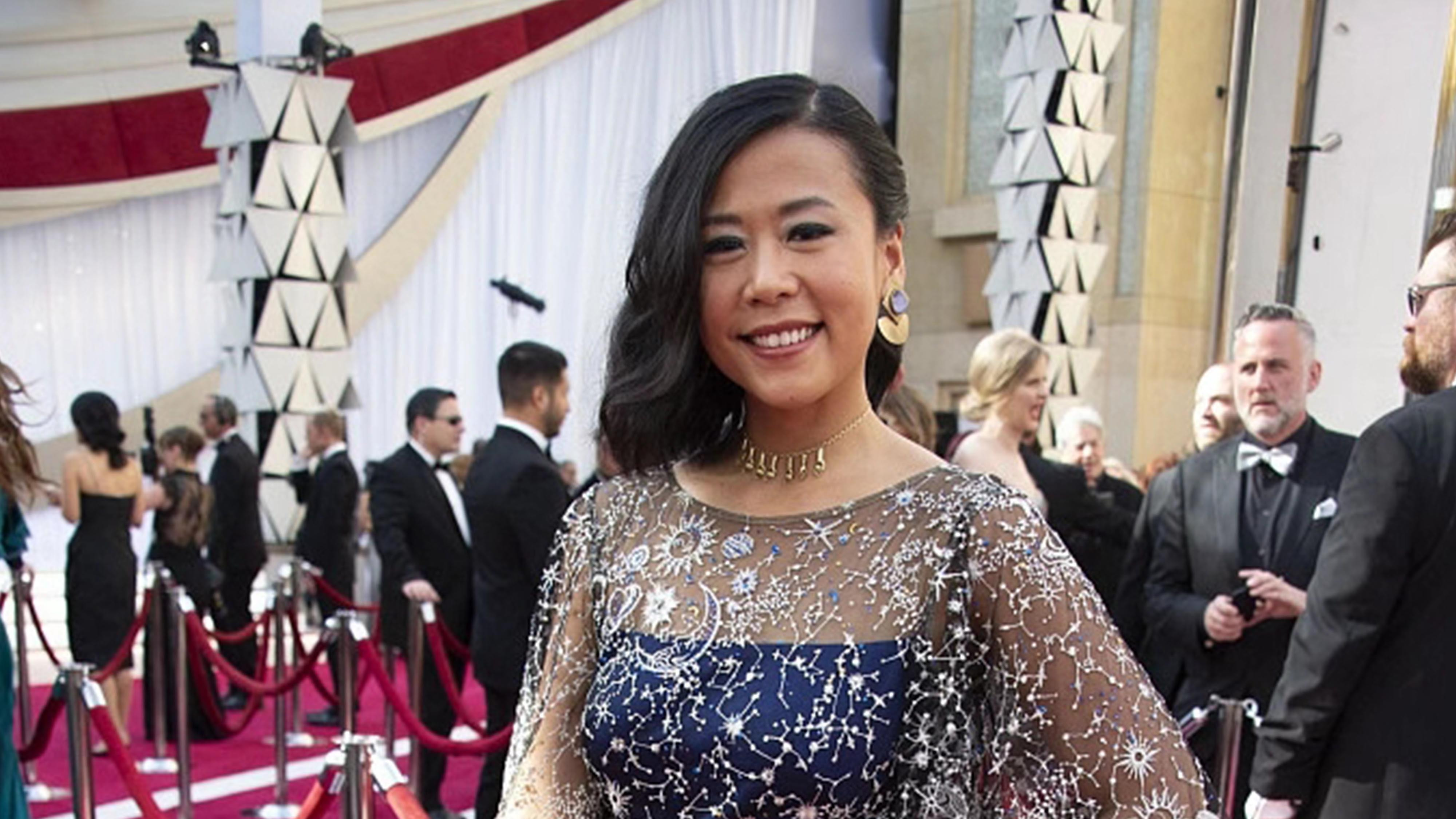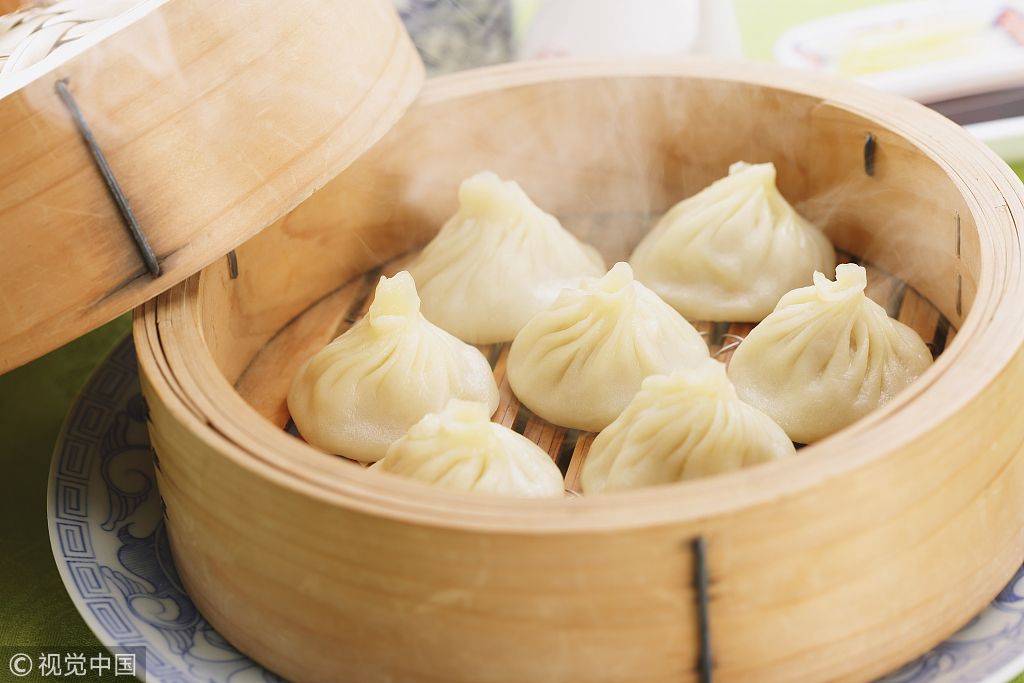
Movie/TV
15:00, 25-Feb-2019
Chinese-born director's animated short 'Bao' wins at Oscars
Updated
14:03, 26-Feb-2019
By Jiang Qingrui
00:45

"Bao," the Pixar film directed by Chinese-Canadian Domee Shi, has won Best Animated Short Film at the 91st Academy Awards in Los Angeles, U.S., on Sunday.
Shi is the first female director to make short films in Pixar. Previously, Pixar had been criticized as a "boys' club," even though the wider animation industry is known as a male-dominated scene.
Accepting the golden statuette, the director said, "To all the nerdy girls out there who hide behind their sketchbooks, don't be afraid to tell your stories to the world."
"You're gonna freak people out but you'll probably connect with them too, and that's an amazing feeling to have."

Producer Becky Neiman-Cobb (L) and Director Domee Shi, winners of Best Animated Short Film for "Bao," pose in the press room during the 91st Annual Academy Awards at Hollywood and Highland in Hollywood, California, February 24, 2019. /VCG Photo
Producer Becky Neiman-Cobb (L) and Director Domee Shi, winners of Best Animated Short Film for "Bao," pose in the press room during the 91st Annual Academy Awards at Hollywood and Highland in Hollywood, California, February 24, 2019. /VCG Photo
Originally born in Chongqing, China, Shi immigrated to Canada at the age of two. In 2011, she began to work for Pixar as a storyboard artist and a director. Her multi-cultural background greatly inspired her work.
Set in Toronto, "Bao" tells a story about the emotional bond between a lonely Chinese-Canadian mother and her son. When the mother cooks Baozi, the traditional Chinese buns with filling, one of them suddenly springs to life.
The bun-turned boy gives the empty-nester another chance to experience motherhood, as she decides to raise him. As he grows, tension between the two also arises: the son wants to gain independence while mother is over-protective.
The scenario turns out to be a dream, and the mother reconciles with her son when he returns home.

Baozi, a traditional Chinese bun with fillings. /VCG Photo
Baozi, a traditional Chinese bun with fillings. /VCG Photo
One thing worth noting is that throughout the eight-minute animated short, there is no dialogue between the major characters. The only exchanges of words are from the TV the dad watches in the background. The whole film tries to convey the characters' emotions mainly through body language instead of words, which is also a feature of traditional Chinese culture.
There are numerous Chinese elements within the animation. The music is filled with Chinese traditional instruments; The furniture and decorations in the setting are common in the homes of the older generation; Tai Chi, a traditional slow-paced martial art that the mother practices, and the Chinese-styled street and shops, all unveil a panorama of Chinese culture.
The computer-animated film was first released with another Pixar feature, "Incredibles 2," in June last year.
Another Chinese-American produced short animation, "One Small Step," was also nominated for this year's Oscar. It was produced by Wuhan and San Francisco-based Taiko Studios, and focuses on how a girl pursues her dream of being an astronaut.
Read more:

SITEMAP
Copyright © 2018 CGTN. Beijing ICP prepared NO.16065310-3
Copyright © 2018 CGTN. Beijing ICP prepared NO.16065310-3